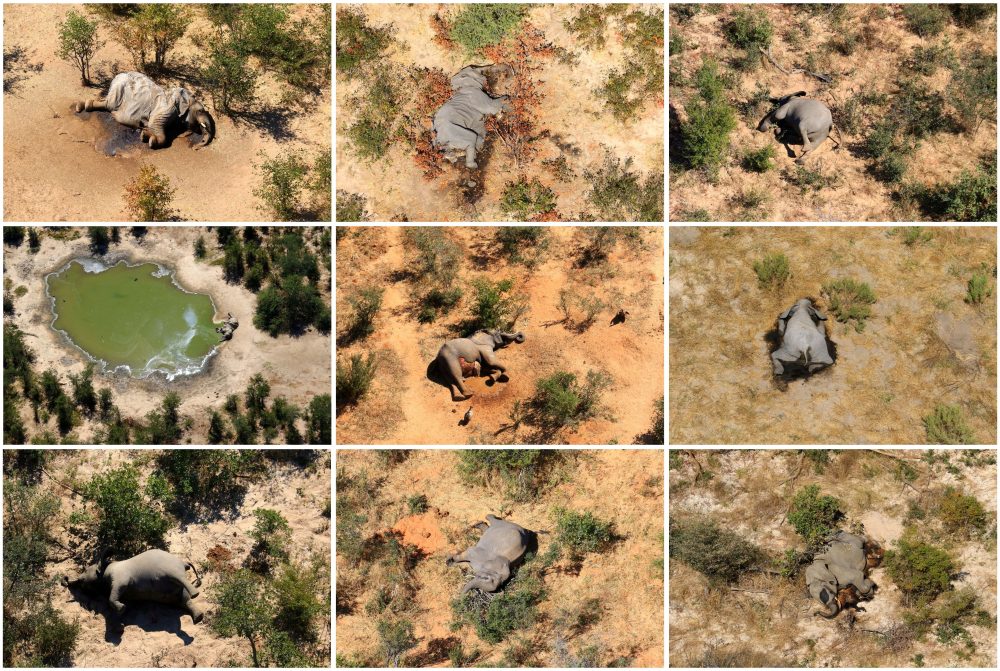WARNING: This story contains images that some readers may find disturbing. Please read at your own discretion.

More than 300 elephants have reportedly died under bizarre circumstances in Botswana, in a mysterious trend that has alarmed local conservationists.
The elephants have been found dead around watering holes, near human villages and on the open savannah. Other live elephants have been spotted stumbling around, weak and confused.
“One elephant was observed walking in circles, unable to change direction although being encouraged by other herd members,” the charity Elephants Without Borders (EWB) wrote in a report on the mystery. The leaked report circulated through various media outlets on Wednesday, including the AFP.
The deaths have been happening in Botswana’s famous Okavango Delta, which is home to about 15,000 elephants. Botswana has the largest wild elephant population in the world with about 130,000 of the animals overall.
“We have had a report of 356 dead elephants in the area north of the Okavango Delta, and we have confirmed 275 so far,” Cyril Taolo, acting director of the Department of Wildlife and National Parks, told AFP.
Government officials told Reuters they’ve counted 275 deaths, while the EWB count stands at 356.

Get daily National news
Taolo says it’s unclear what killed the elephants.
“We do not suspect poaching since (the) animals were found with tusks,” he said. (Poachers infamously remove the tusks of killed elephants to sell on the black market)
Wildlife officials discovered the problem when they spotted 169 dead elephants during one fly-over in early May, according to Dr. Nial McCann, of the U.K.-based charity National Park Rescue.
“To be able to see and count that many in a three-hour flight is extraordinary,” McCann told BBC News. He said further investigations identified more than twice that number of dead elephants over the following month.
“This is totally unprecedented in terms of numbers of elephants dying in a single event unrelated to drought,” McCann said.
Many of the elephants appear to have died “falling flat on their faces,” McCann added in a separate interview with CNN.
Wildlife officials say they’re concerned that the dead carcasses will attract ivory poachers seeking the animals’ tusks.
Elephant numbers are declining in Africa but Botswana has been a rare success story. The country has seen its elephant population grow from 80,000 in the 1990s to about 130,000 today.
Although poachers are elephants’ most high-profile killers, local farmers have also been known to attack them to drive them off. The animals have been known to eat or destroy crops.
Botswana’s President Mokgweetsi Masisi ended a five-year ban on big game hunting in May 2019. However, the hunting season got off to a slow start in April due to global coronavirus lockdowns that have grounded most air travel.
“Three laboratories in Zimbabwe, South Africa and Canada have been identified to process the samples taken from the dead elephants,” the Ministry of Environment, Natural Resources, Conservation and Tourism said in a statement.
—With files from Reuters









Comments
Want to discuss? Please read our Commenting Policy first.